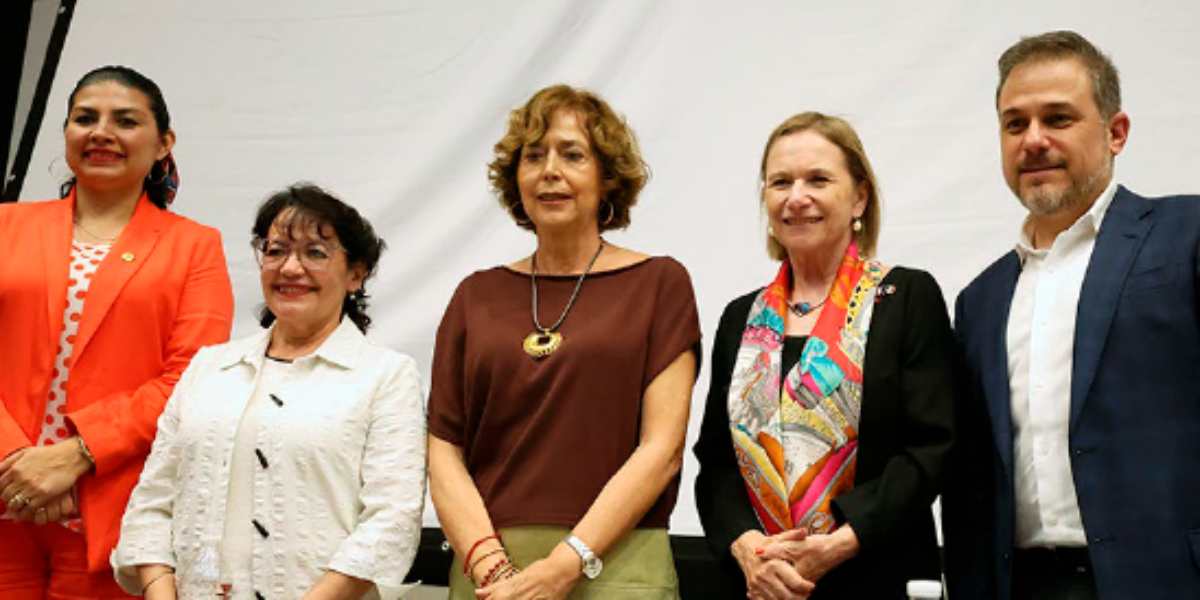
Zenaida Alzaga
"Utopian ideals do not imply a renunciation of reality. Rather, they transcend it—when put into practice, they tend to transform, either partially or entirely, the existing order of a given era," wrote Karl Marx.
Reflecting on utopias is both an ethical and intellectual responsibility, as it enables us to imagine and build a better world—one rooted in the present and aimed toward the future. This idea took center stage at the ninth edition of La Nuit des Idées (Night of Ideas), held under the theme Welcome to the Utopian World.
During the event, scholars from various higher education institutions shared their perspectives on themes such as the pursuit of eternal youth, timeless beauty, futuristic cities, and space-bound utopias. These discussions sparked lively debates and exchanges of ideas and experiences.
More than 50 activities exploring utopian concepts were held at two main venues: the “Juan de Dios Bátiz” Historical and Cultural Center of the Instituto Politécnico Nacional (IPN), located in Casco de Santo Tomás, and the Universidad Nacional Rosario Castellanos (UNRC). Participants included academics from the IPN, the Universidad Nacional Autónoma de México (UNAM), the Universidad Iberoamericana (UIA), El Colegio Nacional, and the French Embassy in Mexico, among others.
The theme of space as a utopian frontier was illustrated through references to early works of science fiction. One of the earliest examples is A True Story by Lucian of Samosata (2nd century CE), often considered the first sci-fi narrative. It recounts a voyage to the Moon, where explorers find themselves caught in a war between the kings of the Moon and the Sun.
Another reference was made to Cyrano de Bergerac, a French novelist, playwright, and poet, who in The Other World: The States and Empires of the Moon (1657), imagines fantastical—sometimes comical—attempts to reach the Moon using improbable methods that entertain and provoke thought.
A vast body of science fiction literature and scholarly research, both national and international, explores the utopian possibilities of space exploration and the question of life in other galaxies, stars, or planets.
Among the most compelling current-day space utopias is the dream of sending humans to Mars and building large-scale cities on the Red Planet. While many researchers believe this is possible, they acknowledge that it will require immense human and technological resources. The timeline, however, remains uncertain.
Utopian thinking also has deep roots in ancient civilizations. The Maya, for instance, were remarkable astronomers and mathematicians. They invented the concept of zero and developed a vigesimal numbering system, which enabled them to construct both a 365-day solar calendar and a 260-day ritual calendar known as the Tzolk'in.
Their knowledge was key to designing temples and planning cities based on solar cycles and agricultural needs. They even built the first known observatory, El Caracol, in the city of Chichén Itzá, Quintana Roo, which allowed them to accurately calculate the solar year, lunar phases, and the cycles of Venus.
Dr. Nahiely Flores Fajardo, a researcher at UNAM’s Institute of Mathematics, explained during her lecture The Utopias of the Universe: Astronomy in Pre-Hispanic Urbanism that El Castillo in Chichén Itzá is aligned along a north-south axis to correspond with the spring and autumn equinoxes. On these dates, the shadows cast by the Sun create the illusion of a serpent descending the steps of the pyramid. This phenomenon can also be seen on days before and after the equinox.
In contrast, she noted, the Templo de las Siete Muñecas (Temple of the Seven Dolls) in Dzibilchaltún is aligned with the center of the city and also marks the equinoxes, serving as a precise astronomical reference in pre-Hispanic urban planning.
Dr. Flores emphasized that ancient peoples needed to observe and predict solar and lunar movements—especially eclipses, which many cultures interpreted as omens.
At the event’s opening ceremony, Rosaura Ruiz Gutiérrez, Mexico’s Secretary of Science, Humanities, Technology and Innovation, and Delphine Borione, French Ambassador to Mexico, remarked that the concept of utopia invites us to imagine a better world and to see our environment from new perspectives. They emphasized that events like this one foster dialogue that can generate innovative ways of addressing the challenges of today and tomorrow.
The Night of Ideas also featured a wide range of cultural and artistic activities, curated by the participating academic communities.